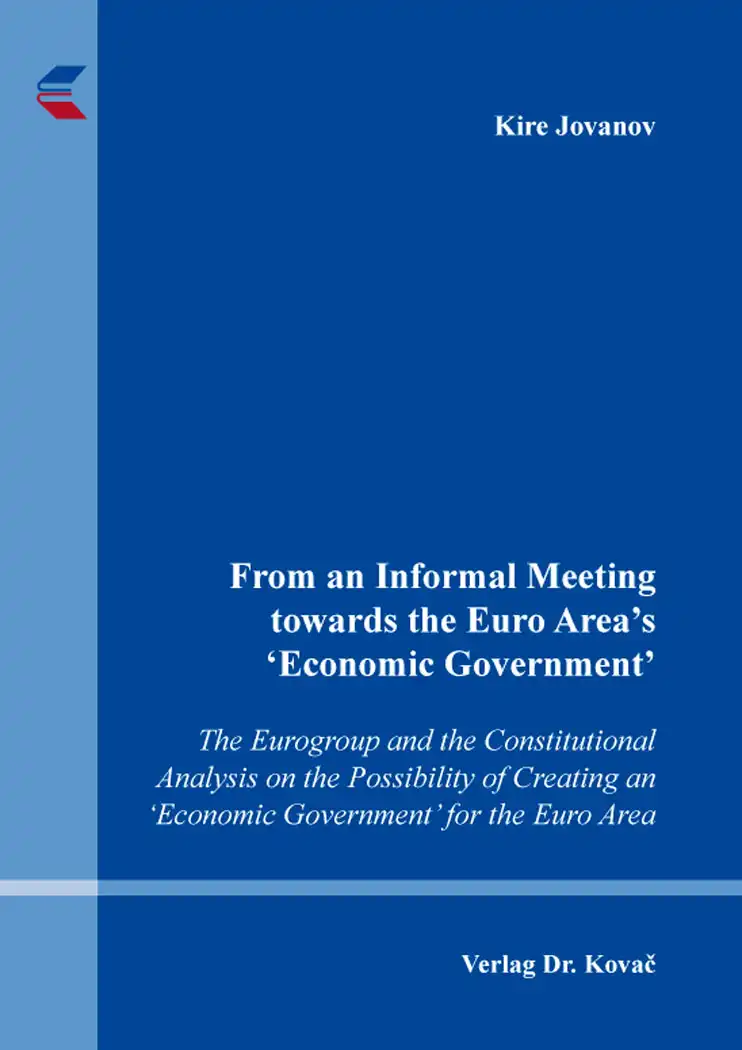Kire JovanovFrom an Informal Meeting towards the Euro Area’s ‘Economic Government’
The Eurogroup and the Constitutional Analysis on the Possibility of Creating an ‘Economic Government’ for the Euro Area
– in englischer Sprache –
Studien zum Völker- und Europarecht, volume 185
Hamburg 2024, 256 pages
ISBN 978-3-339-13850-7 (print) |ISBN 978-3-339-13851-4 (eBook)
About this book englishenglish
The integration in the euro area follows a differentiated approach that has not only existed since the entry into force of the Maastricht Treaty in 1993 but has continued to exist after the Euro crisis.
Whereas the Maastricht Treaty brought about a centralisation of monetary policy in the EU, a counterpart to the European Central Bank was not created. This is fundamentally due to the sovereignty concerns of the Member States with regard to the content of such a body and its powers. This differentiated approach – although such an architectural flaw may seem fundamentally responsible for the Euro crisis – was not neglected during and after the crisis. Instead, mechanisms and institutions were established that are – partly - located outside the EU legal framework.
Although this approach essentially follows the basic idea of creating a resilient economic and monetary union, such an architectural design lacks on accountability requirements.
The doctoral dissertation addresses primarily this post-crisis institutional design (emphasis is given on the European Stability Mechanism, the Single Resolution Mechanism, and the Euro Summit) by focusing on the process of negotiation of the international agreements/regulation, decision-making processes and accountability requirements and highlights - from a legal and political perspective - the existence of the Eurogroup.
The examination portrays furthermore differentiated views (both theoretical and practical) regarding the creation of an “economic government” at EU level and attempts to establish a clear basis for the author’s own reform proposal.
Finally, the doctoral dissertation presents the reform proposal for the EU-centralised Euro Area Economic Executive Council - consisting of two cabinets - which could be responsible for the economic policy of the euro area and its member states.
Link des Autors
Keywords
Economic GovernmentEU-RechtEU-VerfassungsrechtEuro-GipfelEurozoneStabilitätsmechanismusWährungsunionWirtschaftsunionIhr Werk im Verlag Dr. Kovač

Möchten Sie Ihre wissenschaftliche Arbeit publizieren? Erfahren Sie mehr über unsere günstigen Konditionen und unseren Service für Autorinnen und Autoren.
